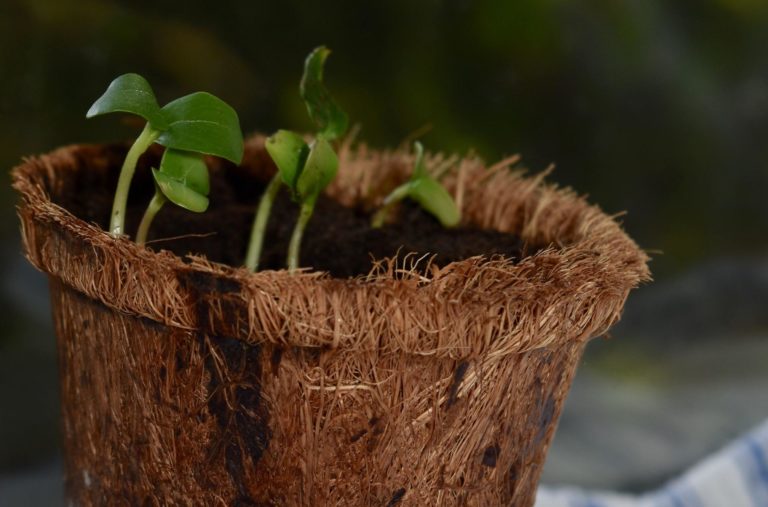Thanking an Idea
Tina Geithner, Ph.D.
Adapting a quote from Epictetus, “[S]He is a wise [wo]man who does not grieve for the things which [s]he has not, but rejoices for those which [s]he has.”
It is easy for us to grieve not having enough time, not getting enough sleep, not getting everything done on our to-do lists, and/or not getting to spend more time with those we love who are with us or who have passed on. Our brains are wired that way – to act like Velcro for the negative and Teflon for the positive, according to Rick Hanson (see his Just One Thing free newsletter: https://www.rickhanson.net/writings/just-one-thing/ or new book by the same name: https://itunes.apple.com/us/book/just-one-thing/id464662212?mt=11 ). There is a survival value in this…the primitive part of our brain is wired to recognize threats and react in ways that keep us alive sets off a fight, flight, or freeze reaction. And, that reactivity often gets in the way of our experiencing happiness and responding with greater choice in the moment. How we can ramp down this reactivity and move towards calm and joy this holiday season, or any time for that matter? One simple method is practicing gratitude.
The word gratitude (grati-i-tude) comes from Medieval Latin gratitudo (Merriam-Webster, 2018: https://www.merriam-webster.com/dictionary/gratitude and Latin gratus, meaning pleasing or thankful. It is a feeling of and readiness to show appreciation in return, which may be demonstrated in the form of kindness, gifts, assistance, or other types of generosity towards others (Wikipedia, 2018: https://en.wikipedia.org/wiki/Gratitude ).
I am grateful today for research which has demonstrated the positive benefits of positive psychological interventions (PPIs), including gratitude, in both healthy and clinical populations. [Bear with the scientist in me for a bit so that I can provide some evidence-based underpinnings to the benefits of gratitude 😉.] In a meta-analysis (a type of study in which the effects of an intervention across multiple studies can be evaluated), Dickens (2017) found that gratitude interventions have led to improvements numerous outcomes, including happiness. Harbaugh and Vasey (2014) determined that the impact of making a gratitude list vs. making a daily events list reduced symptoms of depression in individuals with baseline depression. Watkins et al. (2014) found that participants who practiced remembering 3 blessings on a daily basis for just one week had significantly better well-being than those who practiced remembering 3 things they were proud of, or participants who were in a memory placebo (control) group. Moreover, the participants in the gratitude 3-blessings group continued to demonstrate improvements in subjective well-being after the treatment phase. In a recent study of psychotherapy clients, Wong et al. (2018) investigated the effects of writing letters expressing gratitude to others + psychotherapy, writing expressing deepest thoughts and feelings about stressful experiences + psychotherapy, and psychotherapy alone (the control group). The researchers found that at 4 and 12 weeks, the participants in the gratitude intervention group reported significantly better mental health than those in the expressive writing and control groups, who did not differ significantly from each other. In addition, gratitude practice resulted in lower proportions of words used to express negative emotions!
In short, what does all this research suggest? Simple gratitude practices such as remembering our blessings and making a gratitude list on a daily basis can reduce negative emotional states, improve our happiness, and enhance our mental health and well-being. When we are mindful and intentionally focus our attention on our blessings, we think and feel differently and we experience life in a more positive way…which in turn, leads to changes in how we treat ourselves and others.
How do we bring gratitude into our lives?
Gratitude can be practiced in multiple ways, some examples of which include:
- meditating on gratitude (see Jack Kornfield’s Meditating on Gratitude and Joy below)
- keeping a gratitude diary or journal
- posting pictures that reflect things for which you feel grateful each day to your favorite social media sites, on your refrigerator, or as part of a gratitude board or collage
- writing gratitude letters
- sending holiday cards
- offering to provide a service for someone in need
- sharing a kind word or reflection with passers-by
- exchanging thoughtful and personal gifts
“We can only be said to be alive in those moments when our hearts are conscious of our treasures.” – Thornton Wilder
Ideas live in our heads and gratitude lives in our hearts. Thinking about what we are thankful for shapes our emotions. Gratitude practices can open our hearts, leading to positive feelings of appreciation, generosity, and compassion, and can even rewire our brains. These are simple yet powerful ways to experience more aliveness and joy, no gift-wrapping required! 😉
Resources
Dickens, Leah R. Using gratitude to promote positive change: A Series of meta-analyses investigating the effectiveness of gratitude interventions. Basic and Applied Social Psychology, 2017, 39(4): 193-208. Published online: 30 May 2017: https://doi.org/10.1080/01973533.2017.1323638
Harbaugh, Casaundra N. and Vasey, Michael W. When do people benefit from gratitude practice? The Journal of Positive Psychology, 2014, 9(6). 535-546. Published online 23 Jun 2014: https://doi.org/10.1080/17439760.2014.927905
Kornfield, Jack. Meditation on Gratitude and Joy: https://jackkornfield.com/meditation-gratitude-joy/
Watkins, Philip C., Uhder, Jens, and Pichinevskiy, Stan. Grateful recounting enhances subjective well-being: The importance of grateful processing. The Journal of Positive Psychology, 2015, 10(2): 91-98. Published online: 20 Jun 2014: https://doi.org/10.1080/17439760.2014.927909
Wong, Joel, and Brown, Joshua. How gratitude changes you and your brain. Greater Good Magazine, June 6, 2107: https://greatergood.berkeley.edu/article/item/how_gratitude_changes_you_and_your_brain
Wong, Y. Joel, Owen, Jesse, Gabana, Nicole T., Brown, Joshua W., McInnis, Sydney, Toth, Paul, et al. Does gratitude writing improve the mental health of psychotherapy clients? Evidence from a randomized controlled trial. Psychotherapy Research, 2018, 28(2): 192-202.Published online: 03 May 2016: https://doi.org/10.1080/10503307.2016.1169332






